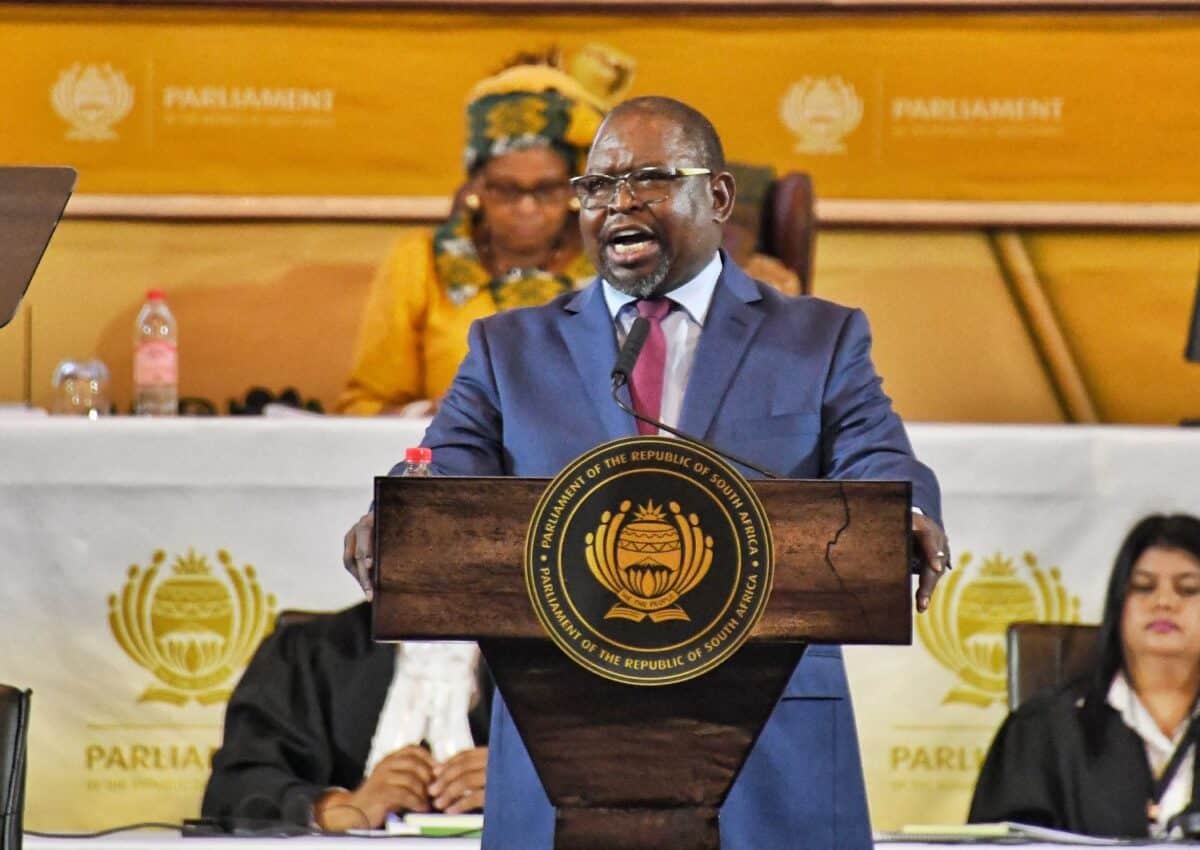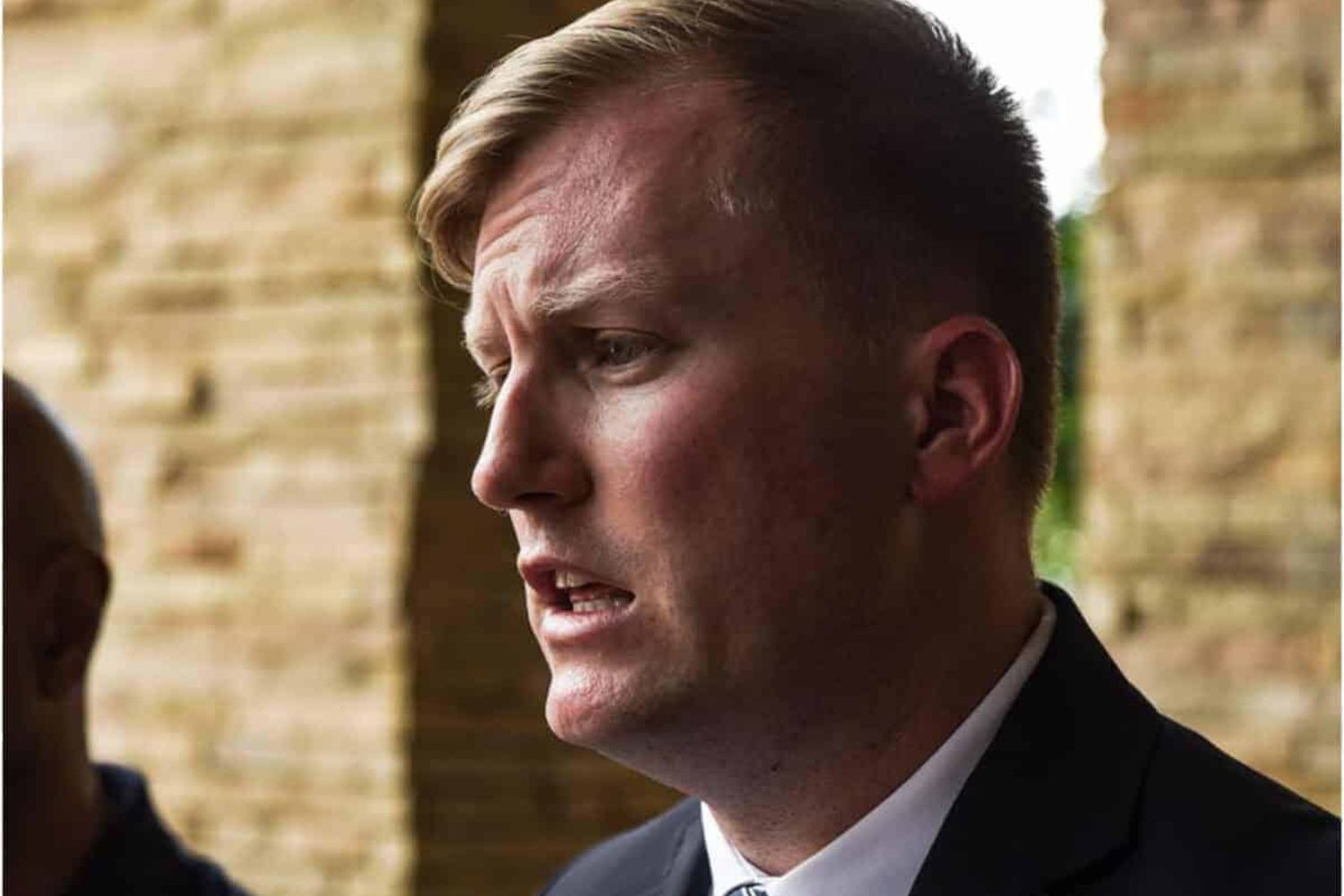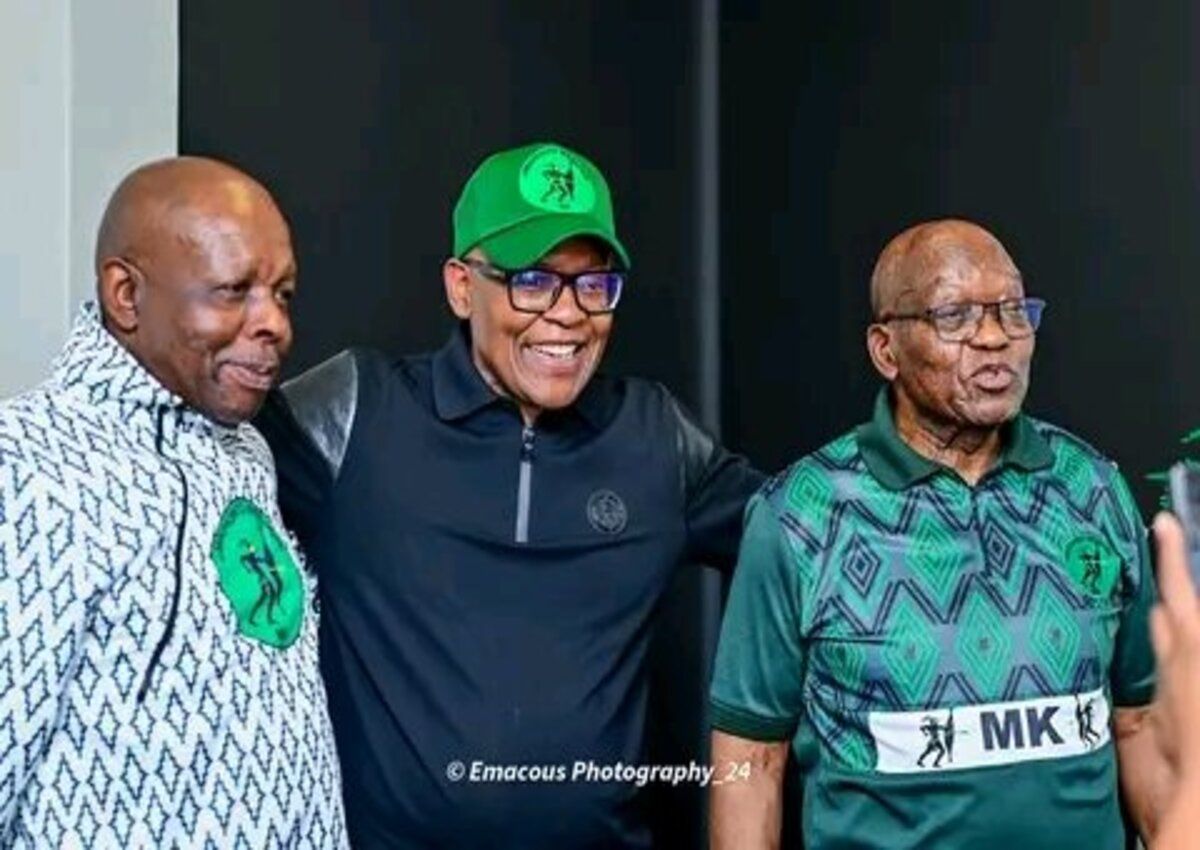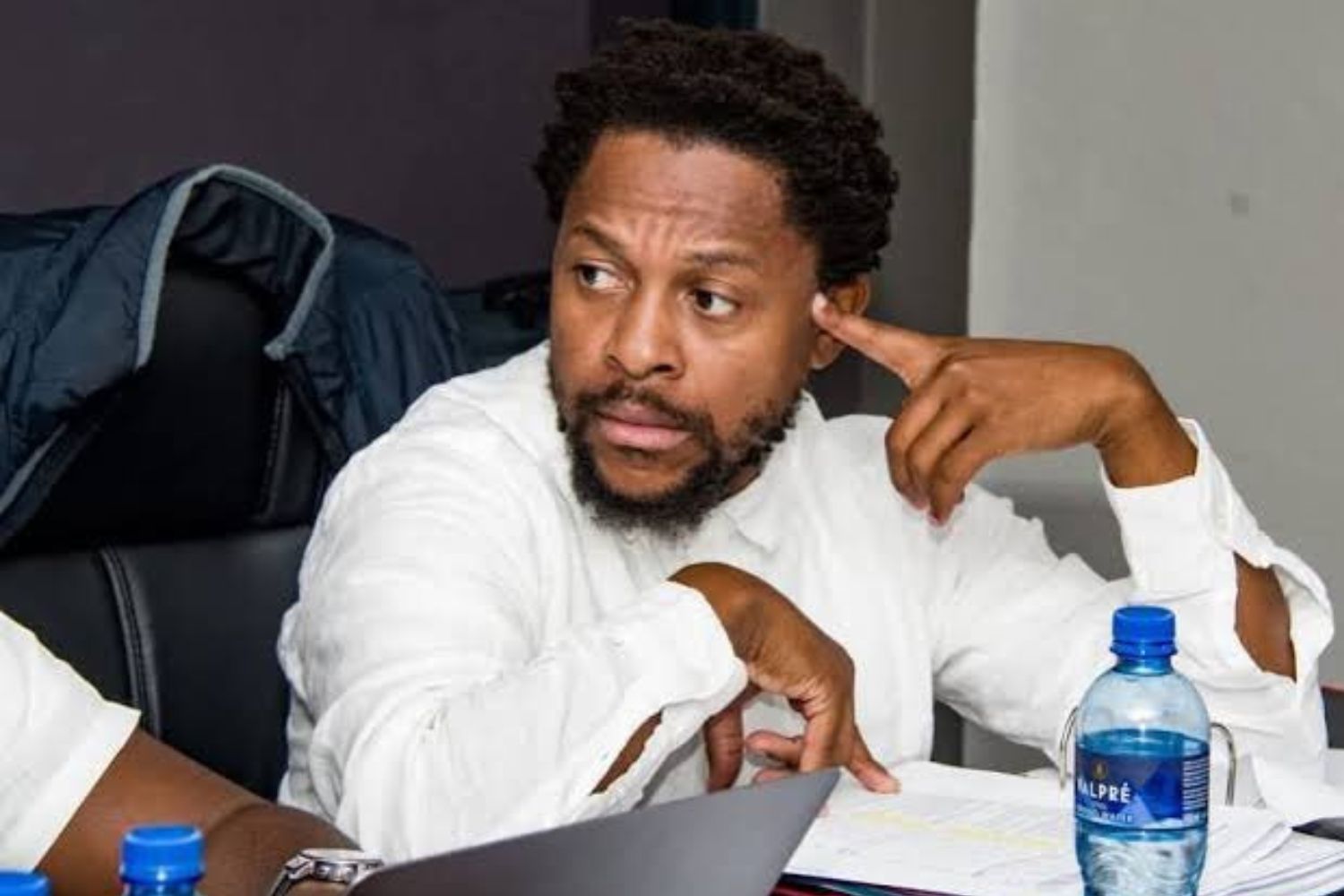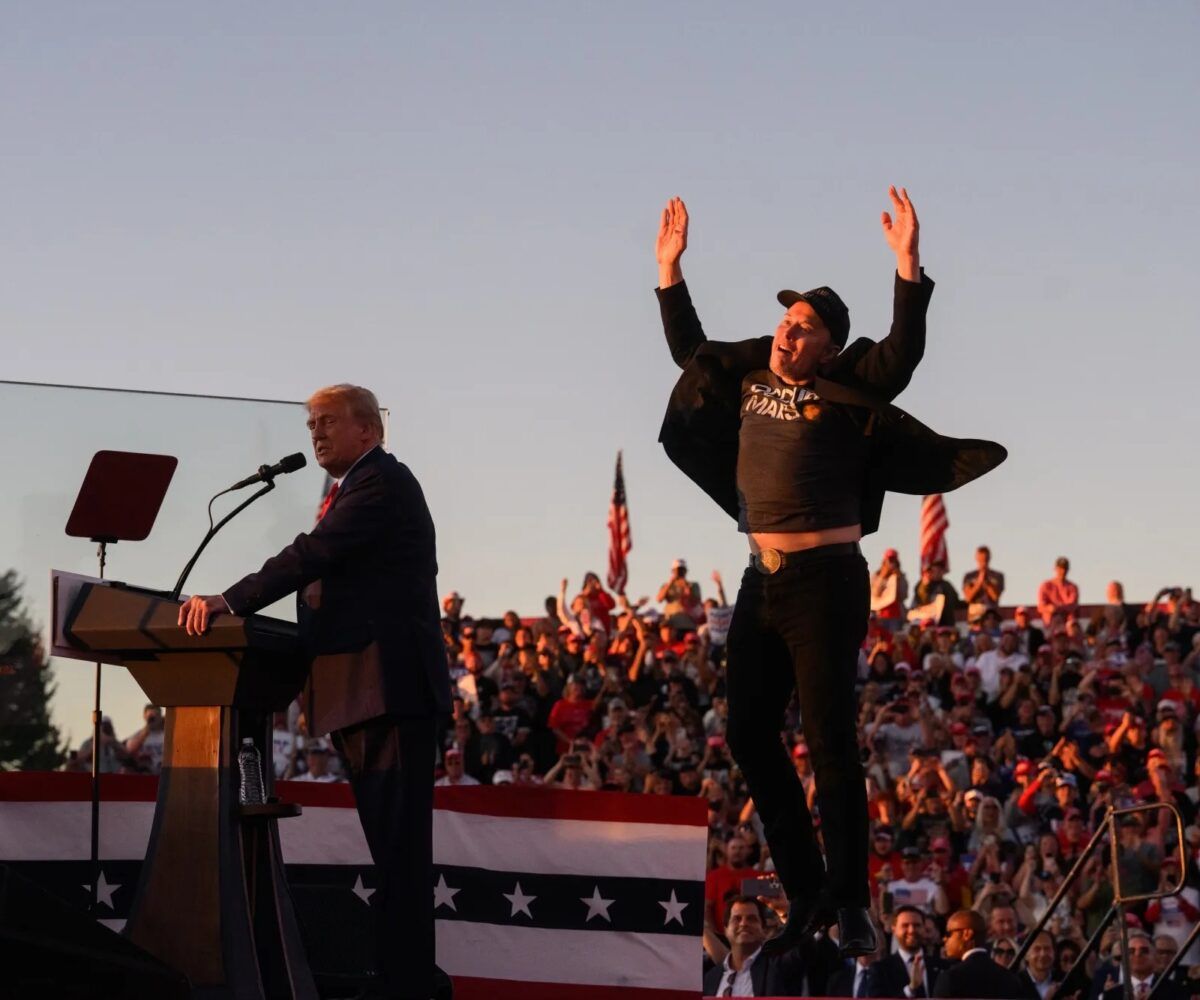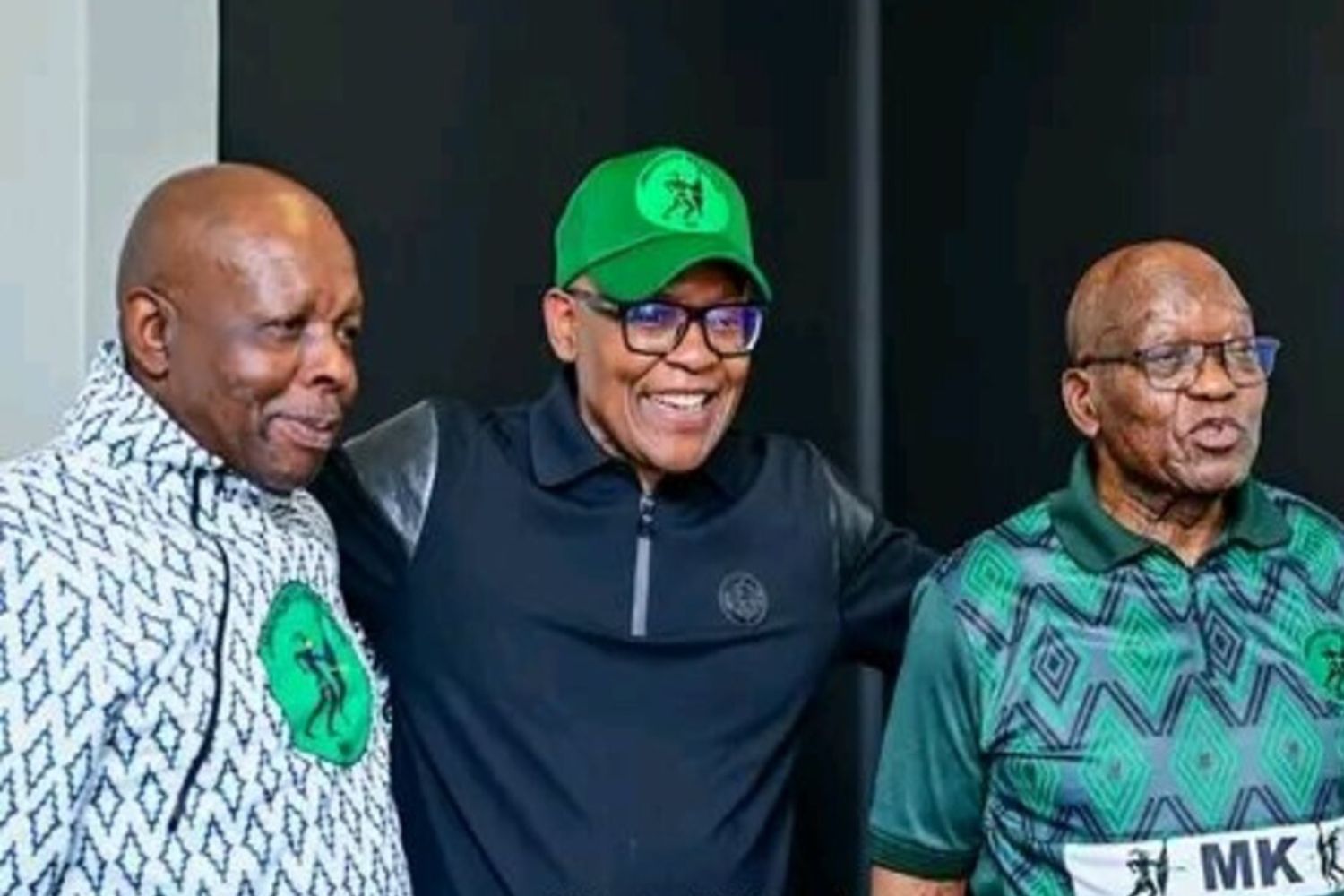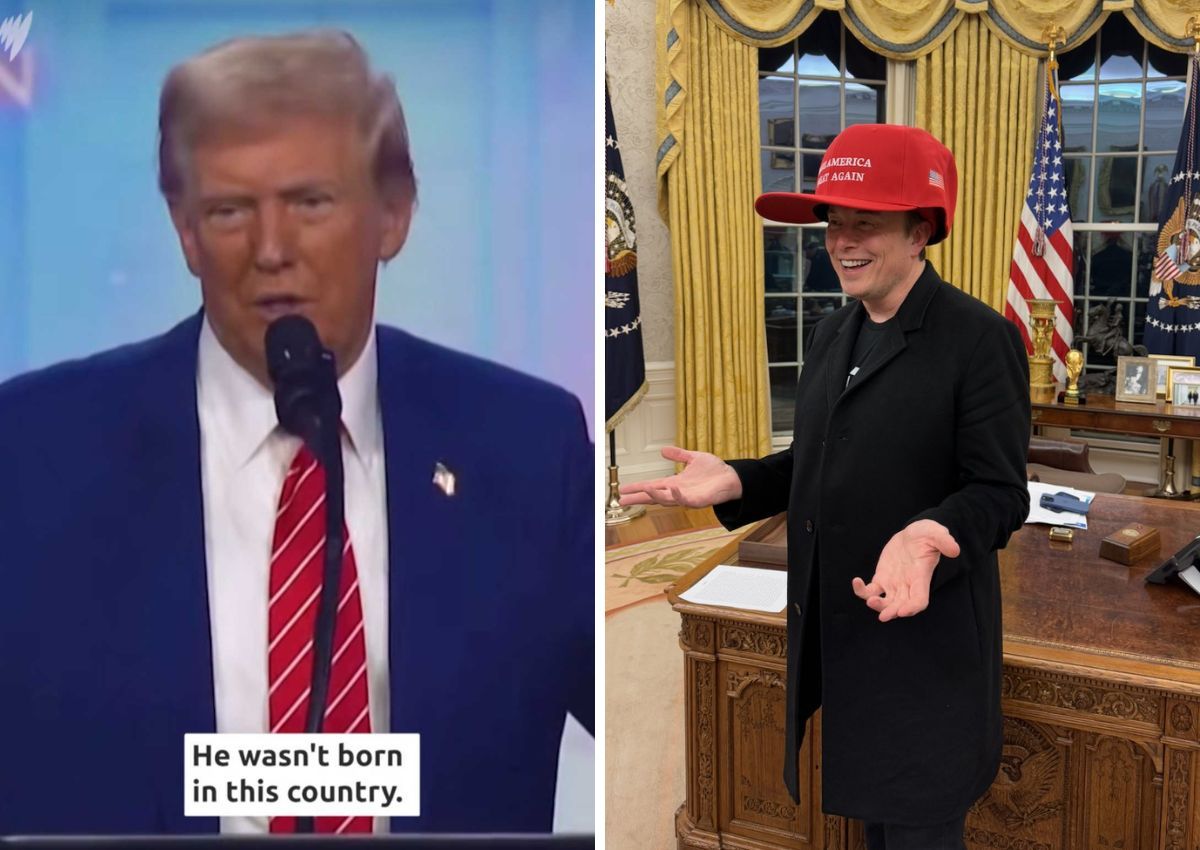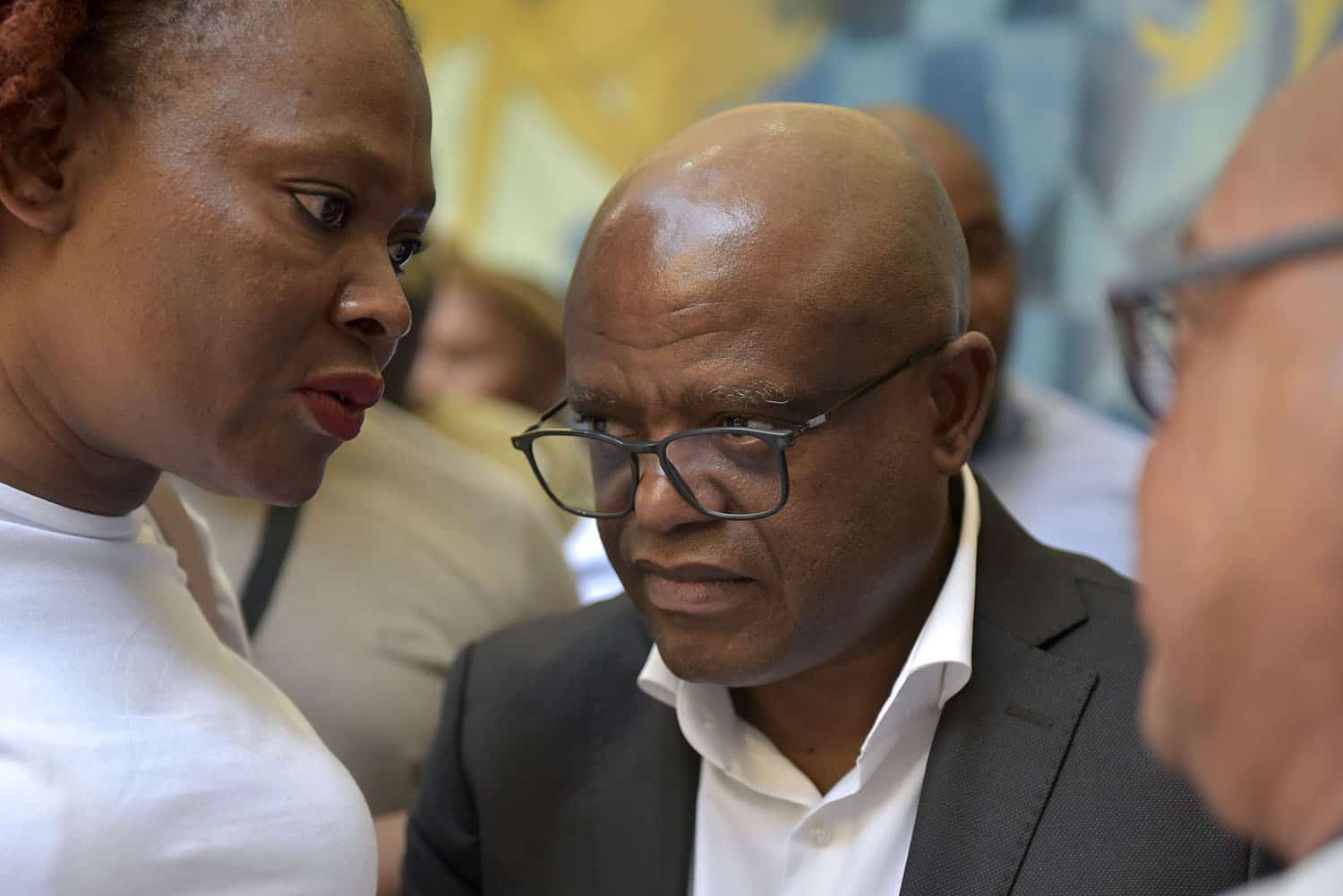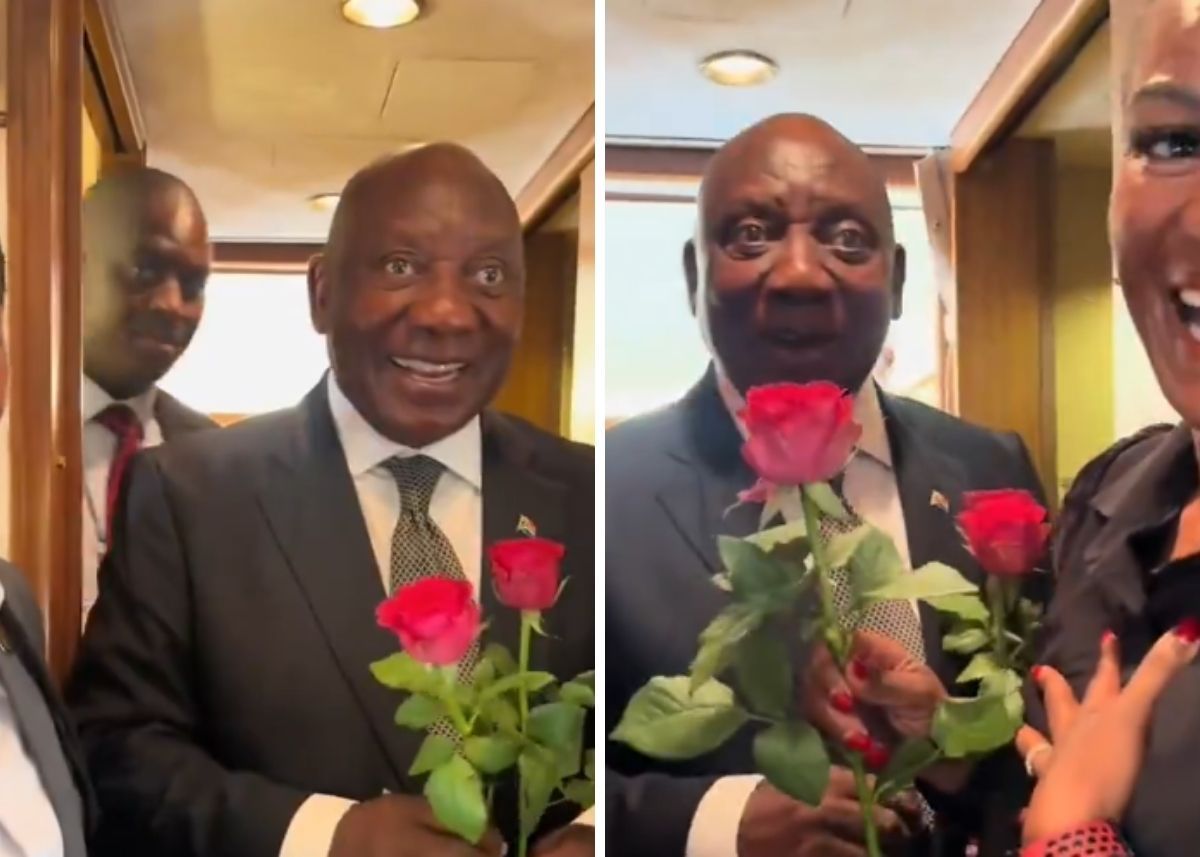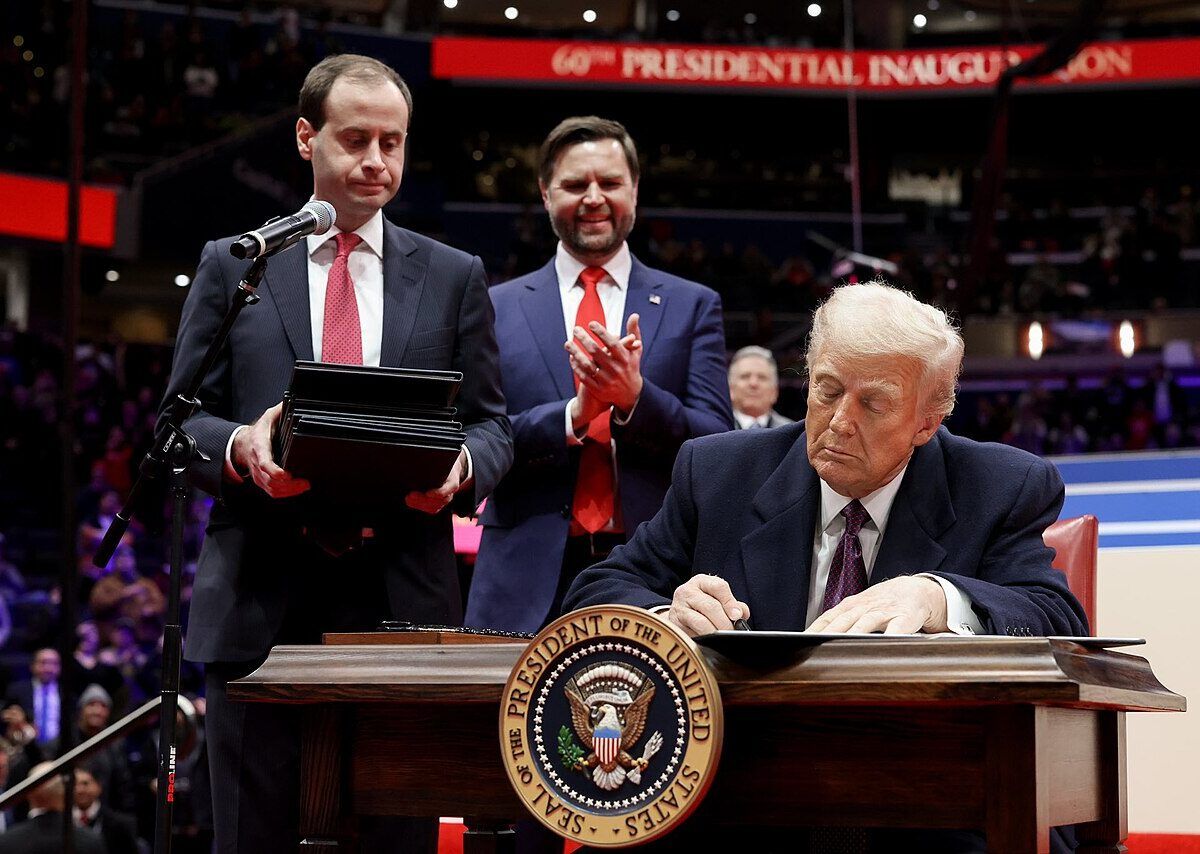Political leaders divided over Finance Minister Godongwana’s budget statement, balancing debt control with unmet priorities on jobs, crime, and inequality.
Political leaders are split on Finance Minister Enoch Godongwana’s Medium-Term Budget Policy Statement (MTBPS), with responses ranging from praise for fiscal responsibility to critiques of unmet priorities.
Democratic Alliance (DA) leader John Steenhuisen said the Medium-Term Budget Policy Statement (MTBPS) was a collective reflection of priorities of the government of national unity (GNU) and a good precursor to the medium-term development plan that will come out in January.
“I commend Mr Godongwana for the right diagnosis, but now he’s also giving us the right remedy for that diagnosis, and I’m very excited about us taking these first tentative steps on a new path of fiscal responsibility and hopefully growth and jobs for South Africans thereafter,” Steenhuisen said.
‘Hopefully growth and jobs’ – Steenhuisen
Government debt remains a headache for the minister, and he said debt has “risen too fast and is too high.”
According to Godongwana, government debt will reach more than R6.05 trillion, or 75.5% of gross domestic product (GDP), in 2025/26. He said that to deal with this problem, the government would reduce the budget deficit.
Steenhuisen said he was happy with the minister’s plans to address this.
ALSO READ: MTBPS: No SOE bailouts, early retirement for 30 000 public servants
“I think you’re going to see that if we meet the targets, maintain the discipline, and anchor that debt, we are going to be able to see debt to GDP at around 70%, which is similar to our peer countries, by 2030,” he said.
The agriculture minister added that he was happy to see that South Africa is moving from consumption spending to spending on investment.
🇿🇦 The DA entered the Government of National Unity with a core focus on economic growth and job creation. Today’s Medium-Term Budget Policy Statement reflects key DA proposals to rescue South Africa.
Your vote made it possible! Read more here: https://t.co/59HWTQiU0M#DAatWork pic.twitter.com/45zsb0N5PC
— Democratic Alliance (@Our_DA) October 30, 2024
Economic Freedom Fighters (EFF) leader Julius Malema rejected the budget and said it should be noted that it is the first “neoliberal” budget of the GNU, which “prioritises the racialised apartheid styles of economic growth.”
SA’s first ‘neoliberal budget’ – Malema
“How can you have a mid-term budget that has no clear plan on how we are going to reduce unemployment? The problem of unemployment in South Africa is very serious,” Malema said.
He added that the issue of infrastructure development is just “paying lip service,” and there is no clear plan on how it will be solved.
Malema said crime remains at the centre of South Africa’s economic crisis as crime makes it difficult for people to conduct business with the country and its citizens, yet Godongwana did not say anything about it.
ALSO READ: ‘National and provincial departments, pay your debts’ – Godongwana during MTBPS
“The economy is not going to grow if they keep on reducing their target to lower… and even if they put new targets, they will not meet those targets,” he said.
“As long as they don’t meet their own targets, they set for themselves, they will never reduce the cost of living in South Africa,” the EFF leader said.
Malema added that there is no clear direction for capping government debt while serving the South African people.�
President @Julius_S_Malema reacting to the Mid-term Budget Policy Statement by the Minister of Finance.
The CIC says we reject the budget and South Africans should note that it is the first neoliberal budget of the coalition government of the DA and the ANC which prioritises… pic.twitter.com/SGK8VbGJwU
— Economic Freedom Fighters (@EFFSouthAfrica) October 30, 2024
‘Budget left SA stagnating’ – MK Party
Umkhonto WeSizwe (MK) party said MTBPS’ policies have left South Africa stagnating with declining social outcomes, a worsening cost of living crisis, and a failing economy.
The national spokesperson, Nhlamulo Ndhela, said that despite cuts to health, education, and social security, debt has spiralled, “limiting our ability to invest in South Africa’s future.”
Ndhela said inequality is deepened under President Cyril Ramaphosa’s administration, underscoring that wealth and income remain concentrated in the hands of the few with little progress made to uplift the marginalised black majority.
ALSO READ: MTBPS: can we hope for more money to stop corruption?
“This is a direct result of economic policy that overlooks transformation and employment equity and fails to support essential public services, especially those meant to uplift black communities,” he said.
In terms of unemployment, Ndhela said South Africa’s unemployment rate has reached “crisis low” levels, with it sitting at 33%.
He also mentioned that social grants have failed to keep up with inflation over the last six years, leaving the most vulnerable citizens unable to meet their basic needs.
Social grant failures
“This ANC [African National Congress]/DA MTBPS fails to protect our children and the elderly. Funding cuts in the main budget have left communities vulnerable,” Ndhela said, adding that violent crimes have risen and increased unregulated border migration.
“Rather than addressing these pressing issues, this MTBPS is continuing to neglect Home Affairs and immigration policy, fuelling social tensions.”
Watch the MK Party’s media briefing here:
In his speech, the finance minister re-emphasised Ramaphosa’s commitment from the State of the Nation Address to create effective infrastructure investment to boost economic activity and enable higher growth in the medium term.
ALSO READ: Minister Godongwana’s budget update sparks hope for economic improvement
United Democratic Movement (UDM) Deputy President Nqabayomzi Kwankwa, however, said that the country cannot embark on proper infrastructure-led growth without addressing governance problems experienced at state-owned enterprises.
Kwankwa said in the past, when state-owned enterprises (SOEs) were bailouts, there was no consequence management in the event that the conditions of the bailout were not met.�
“In order for you to fix capital formation in the country using SOEs in a developmental mode, you need to make sure that SOEs are functioning optimally,” he said.
Address problems at SOEs – UDM
“Now that there are quite a number of political parties around the table, I’m sure we’re going to have a frank discussion about those issues and make sure that they happen.”
African Transformation Movement (ATM) leader Vuyo Zungula called the speech “very underwhelming,” as the minister admitted that the country has problems with revenue generation but offered “nothing tangible” on how revenue will be generated.
“We have illicit financial flows in the country that are costing the fiscus billions, but he does and says nothing about that. We have a problem of illicit trade in our country, whether alcohol or tobacco, but he does nothing to exploit that,” Zungula said.
ALSO READ: MTBPS: 10 issues to look out for
He added that Godongwana said there was a problem with job creation, but “jobs are not going to fall from the sky,” and there needs to be a change in government policy to make sure that there are manufacturing-driven initiatives.�
“Consumerism is not going to create jobs; only manufacturing will create jobs,” the ATM leader said.
[WATCH]
ATM President @ZungulaVuyo reacts to the underwhelming mid-term budget speech given by the #GNU Minister of Finance Mr Enoch Godongwana earlier today.#ATMInParliament. pic.twitter.com/COLhmeoLaz
— African Transformation Movement (@ATMovement_SA) October 30, 2024
